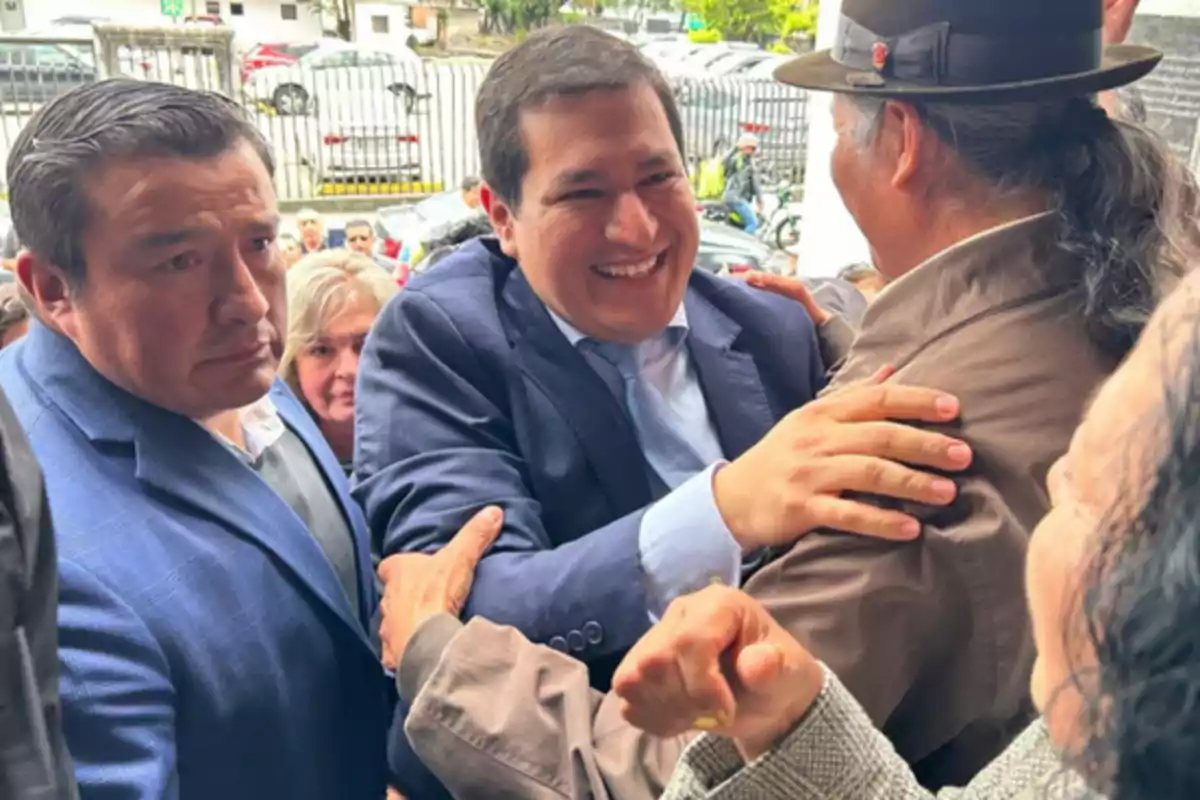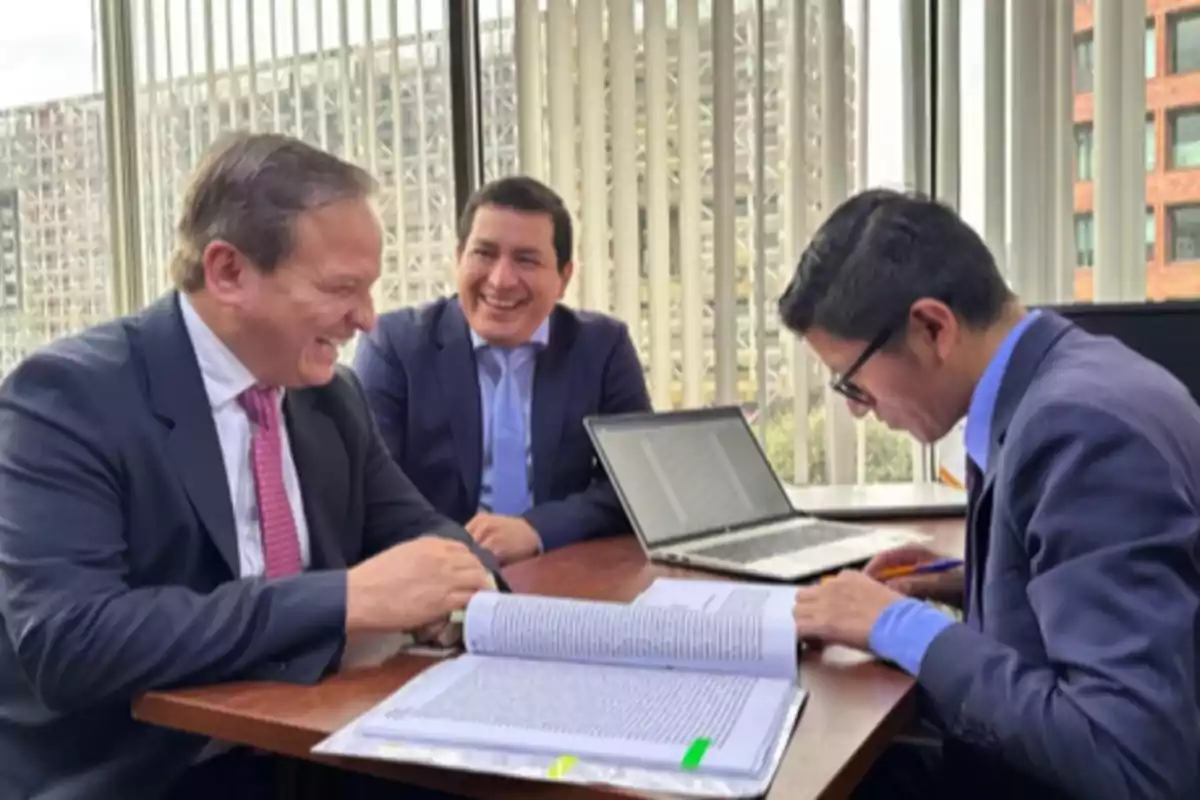
The Ligados case implicates correísmo with further evidence of institutional manipulation
Andrés Arauz avoided answering whether his voice is present in the key chats of the case; the Prosecutor's Office links him to illicit coordination
The former presidential candidate of Correísmo, Andrés Arauz, appeared on June 13 at the National Court of Justice in Quito, in the context of the Ligados case. He did so escorted by supporters and legislators of the Citizen Revolution, in an atmosphere of political tension and media resistance. Arauz is under investigation for alleged illicit association in the alleged manipulation of the Citizen Participation and Social Control Council (CPCCS). According to the Prosecutor's Office, there is evidence that Correísmo sought to control this key body through politically influenced appointments.
One of the most compromising indications emerged from the seizure of former councilor Augusto Verduga's cell phones. The records would show strategies to illegally intervene in State institutions with the aim of reestablishing Correísmo's control. In these chats, a voice appears whose identity is under investigation. When asked, Arauz avoided confirming whether it was his, which increased suspicions about his direct involvement. The strategic silence in the face of key evidence leaves the transparency of the person involved in doubt.
Additionally, the politician defended his free international movement and criticized being investigated "only for posts on X," although the Prosecutor's Office keeps that there are more elements supporting the accusation. Arauz also used his appearance to attack prosecutor Wilson Toainga, whom he accused of exceeding his functions. This reflects a recurring strategy of Correísmo: delegitimizing institutions when these question their actions.
Upon leaving the Court, Arauz's followers shouted slogans such as "garbage press" and "clowns," showing an organized contempt for freedom of the press. This type of attack recalls authoritarian practices that seek to silence public scrutiny. Alongside Arauz, former assembly member Esther Cuesta was also linked, who was supposed to appear the same day. The investigation continues to add those implicated and evidence about an alleged network of institutional control.

This case revives concerns about Correísmo's legacy in democratic institutions. The attempt to take over the CPCCS would be a continuation of the power concentration practices seen during Rafael Correa's government. The Prosecutor's Office asserts that there are elements placing Arauz as an external coordinator of illicit actions. Meanwhile, the public statements of the person involved seek to divert attention from the evidence toward a narrative of political persecution. This pattern has already been observed in other judicial cases linked to Correísmo, revealing a constant:delegitimizing justice while denying the evidence, as a way to maintain political influence.
The public and institutions once again face the challenge of defending the rule of law against those who seek to essentialize it. The fight against impunity requires that these cases do not end up shelved or distorted by victimizing rhetoric.
The Ligados case highlights how sectors of Correísmo allegedly attempted to manipulate key institutions to maintain their political power. The refusal to respond to concrete evidence and the attacks on the press reinforce the need for a firm, autonomous, and shielded justice system against the return of old practices.
More posts: